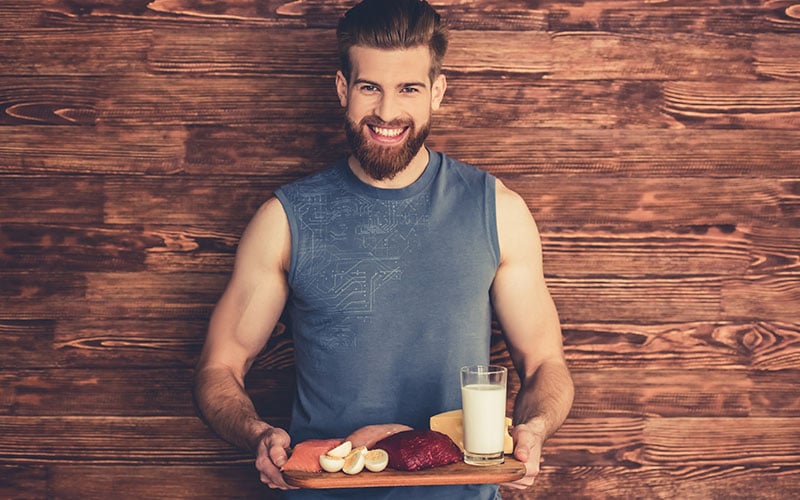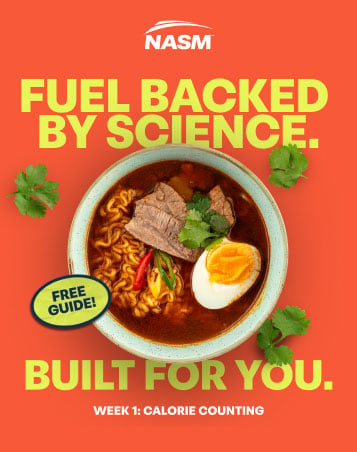Gaining muscle is not quite as easy as going to the gym and lifting weights. That is just one part of the equation. In reality, gaining muscle requires two main things: a stimulus for growth and the energy to grow tissue.
Outside of significant hormonal changes (e.g., puberty or steroid use), the primary catalyst for growth comes from resistance training. The energy to grow tissue comes from the food we consume in the form of calories. You can bulk up in a clean way just by following strategic nutritional planning.
Whether you are a Certified Nutrition Coach, Sports Nutrition Coach, Bodybuilder, or an enthusiast looking to optimize your muscle growth - this blog will show you the nutritional requirements and necessary food for gaining muscle.
Let's dive in!
How Many Calories Do You Need To Gain Muscle?
The question is, how much energy (or calories) do you need to gain muscle? There are many nuanced answers to the quandary, but here are the main things to know about this topic.
First, the optimal way to gain muscle tissue is through being in a relative calorie surplus, meaning that you must consume more calories than you expend.
Second, there appears to be a limit on how quickly people can gain muscle tissue. That means at some point, too much of a calorie surplus adds fat tissue and not any more muscle tissue; too few calories and the rate of muscle gain can be too slow to be useful.
The optimal calorie surplus appears to be between ~350-500 kcal per day (~1500-2000 kJ per day) (1).
You can track your calories and macros with the NASM Weight Loss Calculator, if you want a convenient way to do so.
How Much Protein and Carbohydrates Do You Need To Gain Muscle?
The optimal protein intake for gaining muscle appears to be between 1.6 and 2.2 g/kg, based on the most up-to-date scientific literature (2). The lower end of this range, ~1.6 g/kg, appears to be the point of "saturation" for most of the population and should be considered the target number for most people for optimal protein intake for gaining muscle. This translates to around 0.7-0.8 g/lb of body weight per day.
Carbohydrates also appear to be critical for maximizing muscle growth. Lack of carbohydrates in the diet has been shown to impair muscle growth in some populations, and the current guidelines for optimizing muscle growth are 4-7 g/kg per day (3). This translates to 1.8-3.2 g/lb of body weight per day.
See also: Check out our Course on Portion Sizes. Browse for more online nutrition courses and earn some CEUs!
Constructing Recipes for Gaining Muscle
Recipes for gaining muscle should have three primary goals:
1) the correct calorie amount
2) adequate protein intake
3) sufficient carbohydrates intake
In addition to these three primary goals, recipes for gaining muscle should also include a robust micronutrient (e.g., vitamin and mineral) profile.
Here are some recipes you can use to help meet the three primary goals that meals must meet to help gain muscle as well as providing solid micronutrition.
Breakfast Meal: Power Breakfast Bowl
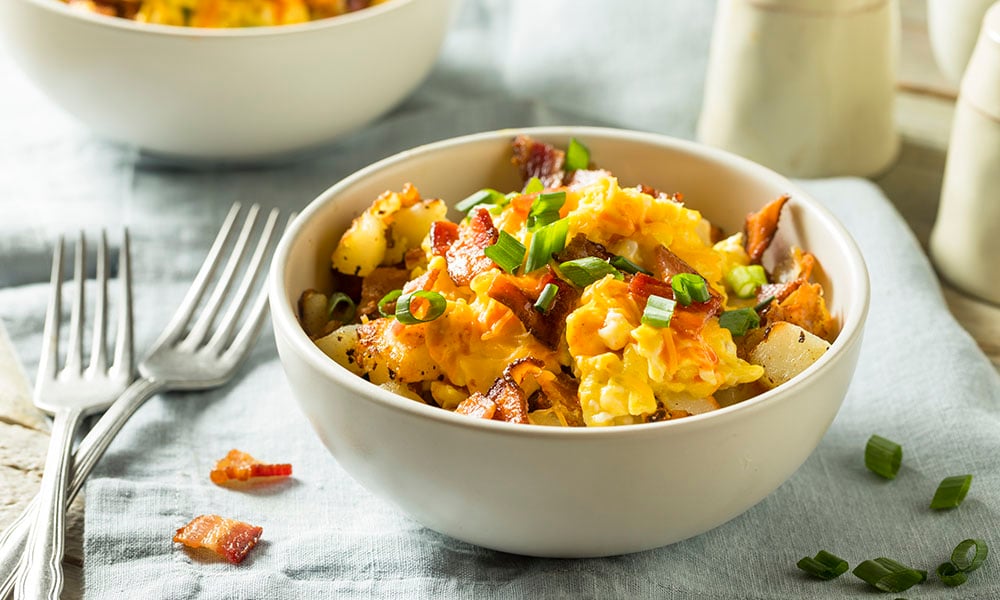
Ingredients
- 3 oz Chicken, diced
- 2 whole eggs, scrambled
- ½ diced orange or red pepper
- 1 cup spinach
- 1 cup cooked quinoa
- 1/2 tsp salt
- 1 tsp pepper
- ½ tbsp olive oil
Directions
- Place olive oil in pan and heat over medium heat.
- Add diced pepper and spinach to pan and cook until peppers are soft and spinach is wilted.
- Add chicken and cook thoroughly.
- Add 2 eggs and stir continuously while cooking.
- Add cooked quinoa.
- Add salt and pepper.
- Place in a bowl and serve.
Breakfast Meal: Muscle-Building Smoothie
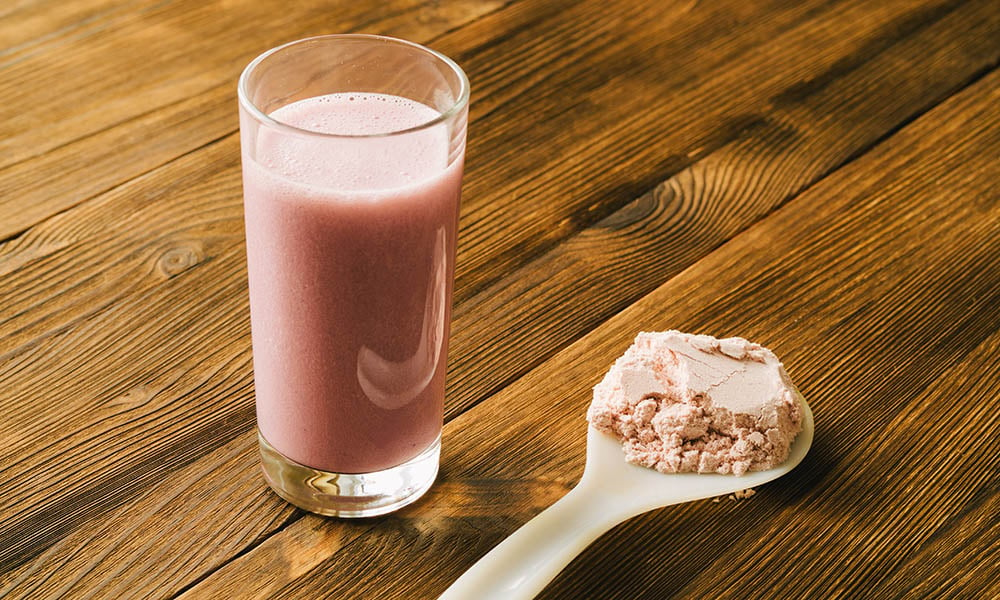
Ingredients
● 1 scoop protein powder
● ½ cup ice
● 1 cup mixed frozen berries
● 1 banana, peeled
● 1 cup milk or milk alternative
● 1 cup spinach
● 1 tbsp peanut butter
● ¼ cup whole oats
Directions
1. Place all ingredients in a blender.
2. Blend until singular consistency.
3. Pour in a glass and serve
Lunch Meal: Cashew Chicken Stirfry
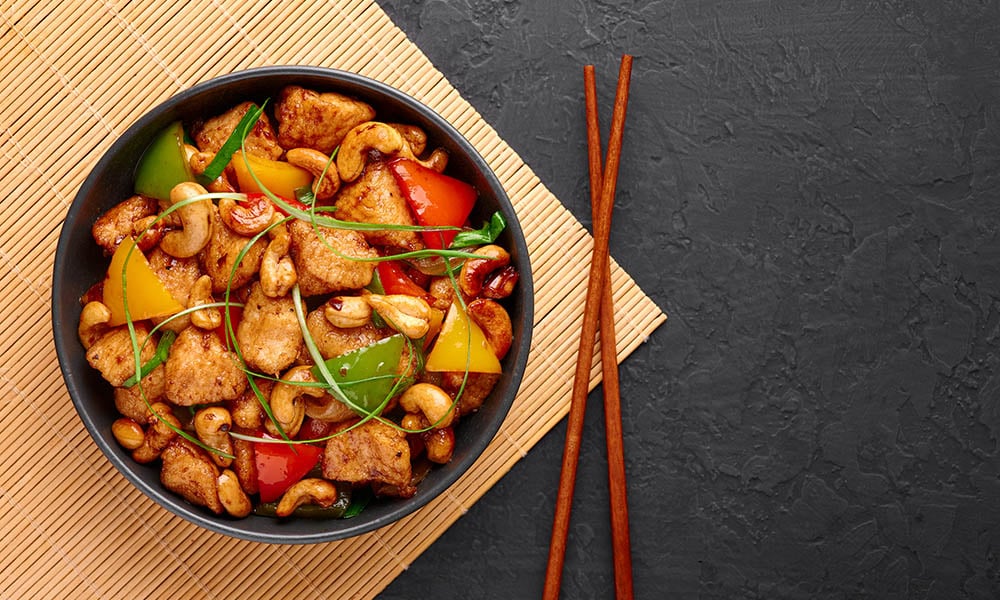
Ingredients
- 5 oz Chicken, diced
- ¼ cup cashews
- 5 tbsp soy sauce
- 5 tbsp hoisin sauce
- 1 clove minced garlic
- ½ tbsp rice vinegar
- ½ teaspoon cornstarch
- ½ tsp sesame oil
- 5 cups mixed veggies
- 1 cup cooked rice
Directions
1. Place sesame oil in pan and heat over medium heat.
2. Stir soy sauce, hoisin sauce, garlic, and rice vinegar together.
3. Add cornstarch to sauce and stir.
4. Add chicken to the pan with sesame oil and cook until thoroughly cooked.
5. Add veggies to the pan.
6. Add sauce to the pan and cook 2-4 minutes until the sauce reduces.
7. Place rice in a bowl.
8. Place in chicken and veggie mix over rice in the bowl and serve.
Dinner Meal: Curried Chicken and Red Lentils
Ingredients
● 6 oz Chicken, diced
● ½ yellow or white onion, diced
● 1 carrot, diced
● 1 cup red lentils, rinsed
● 1.5 tablespoons curry powder
● ¼ tsp turmeric
● 4 cups chicken stock
● 2 tbsp pepitas
● 2 tbsp olive oil
Directions
1. Place olive oil in pan and heat over medium heat.
2. Add onions and carrots to the pan and cook for 2-3 minutes.
3. Add garlic and cook for 2-3 minutes.
4. Take half the curry powder and coat chicken in it. Set the other half of curry powder aside.
5. Place chicken in a pan and cook for 3-4 minutes. Add rest of curry powder and pour in chicken stock, scraping bits off the bottom of pan and stir.
6. Add lentils in, lower heat to simmer, stir and let cook for 20 minutes.
7. Serv in a bowl.
See more recipes like this that are specific to athletes by checking out the free NASM recipe book for athletes.
References
- Slater GJ, Dieter BP, Marsh DJ, Helms ER, Shaw G, Iraki J. Is an Energy Surplus Required to Maximize Skeletal Muscle Hypertrophy Associated With Resistance Training. Front Nutr. 2019 Aug 20;6:131. doi: 10.3389/fnut.2019.00131. PMID: 31482093; PMCID: PMC6710320.
-
Morton RW, Murphy KT, McKellar SR, et al. A systematic review, meta-analysis and meta-regression of the effect of protein supplementation on resistance training-induced gains in muscle mass and strength in healthy adults British Journal of Sports Medicine 2018;52:376-384.
- Slater G, Phillips SM. Nutrition guidelines for strength sports: sprinting, weightlifting, throwing events, and bodybuilding. J Sports Sci. 2011;29 Suppl 1:S67-77. doi: 10.1080/02640414.2011.574722. Epub 2011 Jun 12. PMID: 21660839.

